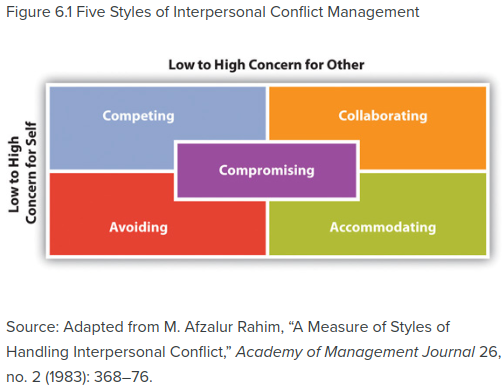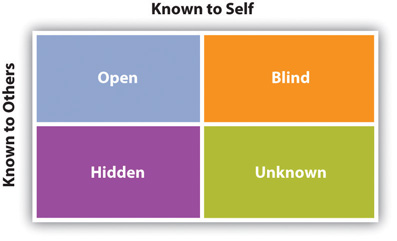Conflict Management Styles
Jump to navigation
Jump to search
- Five styles of interpersonal conflict management [1]
- Mentions awareness of instrumental, relational, and self-presentation goals in negotiation
- Demand-withdrawal pattern - [2] - ranks among the most destructive and least effective interaction patterns
Conflict and Collaboration
- Want collaboration? Accept and actively manage conflict - [3]. But despite the billions of dollars spent on initiatives to improve collaboration, few companies are happy with the results.
- The three myths of collaboration - that we need teams, that we can incentivize collab, and that we can structure companies for collab [4]
- An incentive is too blunt an instrument to enable optimal resolution of the hundreds of different trade-offs that need to be made in a complex organization.
- root cause of failures in cooperation: conflict
- Executives underestimate not only the inevitability of conflict but also—and this is key—its importance to the organization. The disagreements sparked by differences in perspective, competencies, access to information, and strategic focus within a company actually generate much of the value that can come from collaboration across organizational boundaries. Clashes between parties are the crucibles in which creative solutions are developed and wise trade-offs among competing objectives are made.
- Managing conflict - at the point or up the chain - transforms conflict from a major liability into a significant asset
Solutions:
- Devise and implement a common way of dealing with conflict. Intel’s systematic method for working through differences has helped sustain some of the company’s hallmark qualities - What techniques does Intel use?
Communication in the Real World
- spreading someone’s private disclosure without permission for personal gain does not demonstrate communication competence [https://open.lib.umn.edu/communication/chapter/6-4-self-disclosure-and-interpersonal-communication/#jones_1.0-ch06_s04_s01_f02
- Communication competence - Before you have built up a rich cognitive knowledge base of communication concepts and practiced and reflected on skills in a particular area, you may exhibit unconscious incompetence, which means you are not even aware that you are communicating in an incompetent manner. Once you learn more about communication and have a vocabulary to identify concepts, you may find yourself exhibiting conscious incompetence. This is where you know what you should be doing, and you realize that you’re not doing it as well as you could. However, as your skills increase you may advance to conscious competence, meaning that you know you are communicating well in the moment, which will add to your bank of experiences to draw from in future interactions. When you reach the stage of unconscious competence, you just communicate successfully without straining to be competent. [7]

